Review of Bright Future
Introduction
The idea of poisonous mutant jellyfish, released into a city`s water system, puts me in mind of those 50s schlock horrors. It seems ideal fodder for those low budget productions where the mutant menace would be a thinly veiled allegory to the evil communists, about to destroy the American way. There would also be a poster where you could find those images of scantily clad damsels, and promises of gut wrenching gore that the Hays Code prohibited from the film itself. I certainly wasn`t expecting this quirky character piece from director Kiyoshi Kurosawa. The movie is summarised in sufficient detail up above, so I won`t bother with the old cut and paste.
Incidentally, this is the shorter 92-minute International version, as opposed to the original 115-minute piece. But before you book yourself some riding lessons and start searching for a high horse, you should be aware that this is a Director`s Cut. For some imbecilic reason, distributors are under the impression that foreign films sell more in shorter versions. Imbecilic I say, as few of them see a decent cinema run, and are more usually released direct to DVD in the West, where running time isn`t really an issue. Fortunately, it fell to Kurosawa to re-edit his film, and he also got the budget he desired to do a proper job of it. You can read his thoughts on the matter at…
http://www.midnighteye.com/interviews/kiyoshi_kurosawa2.shtml
Suffice it to say that while it isn`t the version that many would want, and you may find that the overall package pales in comparison to the Japanese and Korean releases, it certainly isn`t the hatchet job that some films suffer transitioning to the Western market.

Video
Bright Future gets a 1.85:1 anamorphic transfer, which is all I have to say about that. The film was shot on digital video, which is never going to test the limits of the DVD format. The image is variable, from sharp with excellent contrast, to dim, blurry and with excessive grain. It all has a documentary feel to it, with the camera acting as a dispassionate observer rather than in the action. Tokyo has been turned into a cold, impersonal city, simply by leaching the film of colour, leaving it just a shade above monochrome. The only real colour is the striking jellyfish, which I assume were realised in CG. At least I don`t know the kanji for Jellyfish Wrangler to look for in the credits.
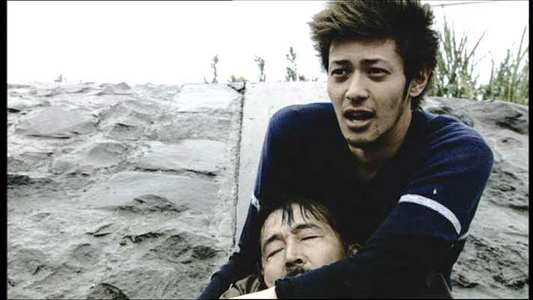
Audio
You get a choice of DD 2.0, 5.1 and DTS Japanese soundtracks here, with optional English subtitles. It`s much the same really, with it being a dialogue-centric film, quite naturalistic and un-excessive in its sound design, and only occasionally requiring the mood signpost of a music soundtrack. Hence it`s all pretty much front focussed, with the surrounds really only kicking in when a little ambience is required.
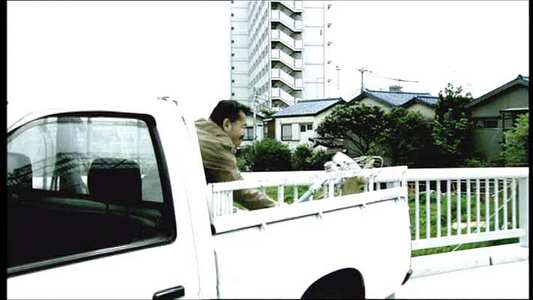
Features
The final release should have a featurette, trailer and film notes, but the review disc was utterly bare. There`s also a rather obtrusive layer change on this disc, but the retail disc could be different in that respect.
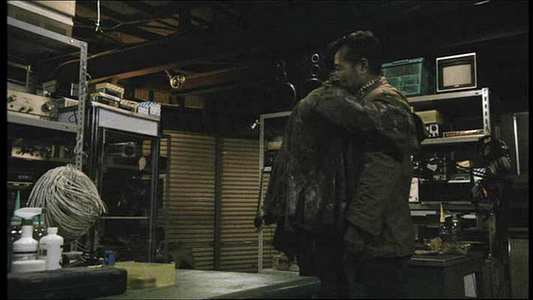
Conclusion
Forgive the wordplay, but I found Bright Future to be dull and lifeless. It`s one of those films that you have to work at, and invest in. None of the answers are given to you, none of the characters are convenient and accessible stereotypes, and the narrative doesn`t exactly follow any known conventions. On paper this is the sort of film that I love, the kind that offers me something that I haven`t seen before, and makes film-going an interactive experience, making me think about and question what I`m seeing. It`s just that Bright Future doesn`t do that very well.
The themes are universal, and crop up in films again and again. We have the disenfranchisement of the young, their disillusionment, the desire for revolution and rebellion, the gulf that separates the generations, the preference for a fantasy escapist world as opposed to reality, and the cold impersonal nature of city life, so antithetical to nature. The jellyfish serves as metaphor, although metaphor to what is left up to the viewer.
There are things to appreciate about this film, not least of which is the jellyfish itself. The central motif is visually striking, and beautifully filmed. For such an ephemeral centre to the plot, it works in holding the interest. I also found myself drawn to the relationship that develops between Mamoru`s father and Yuji, a sort of surrogate father son dynamic.
But as the end credits rolled, I found myself somewhat deflated by the experience. Bright Future has a lot of ideas and characters, none of which are really developed. It asks questions but fails to offer any answers, and it tantalises you with imagery and enigma, but fails to deliver the gourmet feast that it implies. It was enough to keep me hooked from beginning to end, but I failed to take anything positive from the conclusion and felt a little cheated. But this is one of those films that whether you`ll feel the same way is solely down to you.
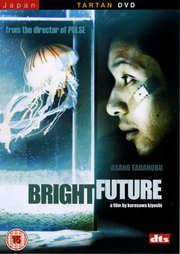
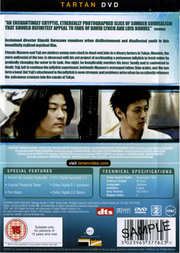
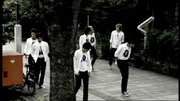



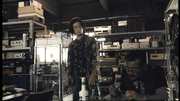
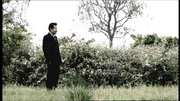
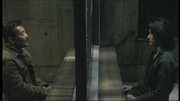
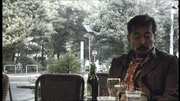
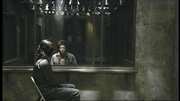
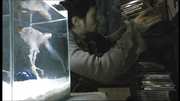
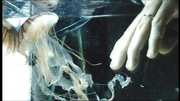
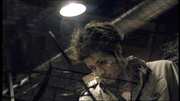
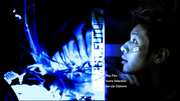
































Your Opinions and Comments
Be the first to post a comment!